Does Lack Of Sleep Cause Hair Loss? A Few Tips To Improve Sleep
Sleep well because the look of your mane can speak volumes about your sleep cycle.
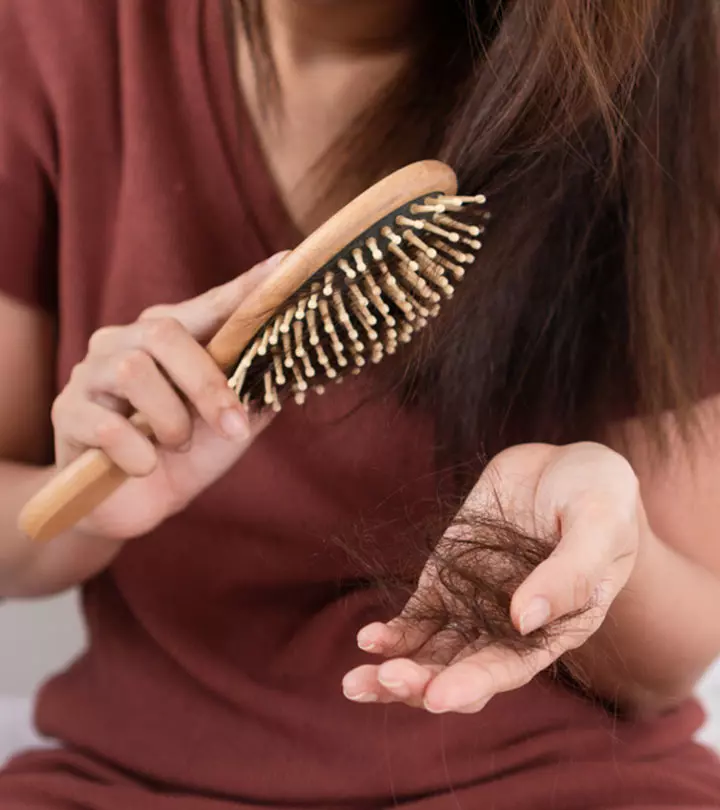
Image: Shutterstock
High blood pressure, diabetes, heart attack, and more — these problems are associated with sleep deprivation. But does lack of sleep cause hair loss, too? Unfortunately, the answer is yes. Sleep deprivation can weaken the hair follicles and lead to hair shedding. In addition, stress and lack of sleep can cause androgenetic alopeciai A form of permanent hair loss from the scalp due to an excessive response to androgens (hormones responsible for male characteristics). or hair loss (1). This article assesses the relationship between lack of sleep and hair loss. Read on.
In This Article
Science Behind Sleep Deprivation, Stress, And Hair Loss – A Vicious Cycle
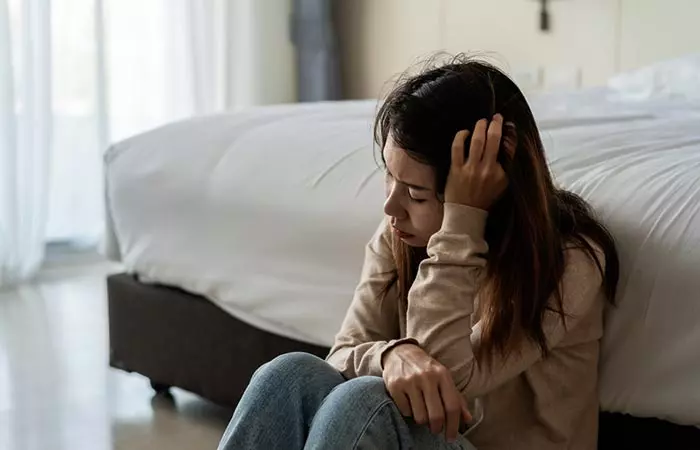
Adequate sleep is essential to stay healthy and maintain your well-being. A peaceful sleep for 7-8 hours is needed for the body’s natural repair and regulation process. It also helps your physiological system recover from stress. Insufficient sleep has negative consequences on the health that directly or indirectly leads to thinning of hair.
Our body undergoes different sleep or circadian cycles that regulate the stem cells and growth of hair follicles. During the anagen stage (hair growth phase) of the hair development cycle, a circadian oscillation results in stem cell development of hair follicles that stimulates hair growth during a particular period of the day (2).
Poor sleep patterns and improper circadian cycle raise the cortisol level (stress hormone) that results in hair loss (3) (4). A study published in the American Journal of Pathology illustrated the relationship between stress levels and hair growth. The release of neurohormones, neurotransmittersi Signaling molecules secreted by a neuron that carry chemical signals without which the body cannot function. , and cytokinesi Small membrane-bound proteins that are crucial for the growth and activity of immune system cells and blood cells. related to excess stress level affects the hair growth cycle (5).
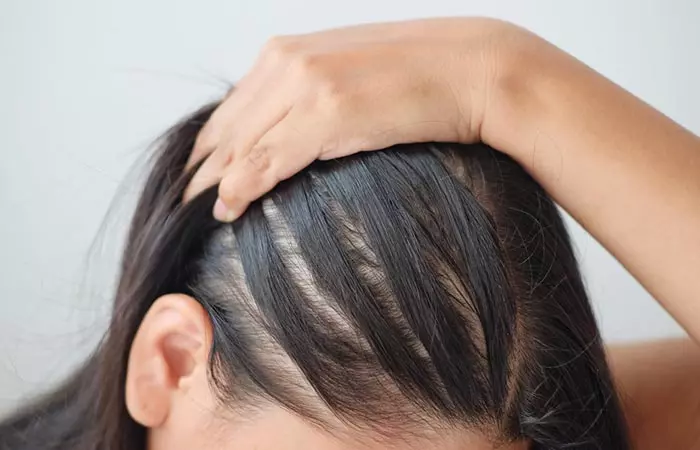
However, sleep disorders like insomnia or lack of sleep affect the functioning of the human growth hormone (HGH). A study shows that the night surge of growth hormone is dependent on the sleep cycle. Irregular, limited, or disturbed sleep lower HGH levels, which leads to thinning hair or male/female pattern baldness (6) (7).
Therefore, a regular sleep routine of 7- 8 hours may help manage stress and decrease premature shedding of hair.
 Fun Fact
Fun FactApart from insomnia, sleep disorders like sleep apnea may also play a role in hair loss. Find out more about it in the next section.
Key Takeaways
- Sleep deprivation can cause hair follicles to deteriorate, resulting in hair shedding. It may also lead to androgenetic alopecia or hair loss.
- Hair quality and shedding can be improved with lifestyle changes, a good diet, and regular sleep-wake cycles.
- However, if you’re experiencing a lot of hair loss or shedding, you should see a dermatologist to find out the root cause.
Can Sleep Apnea Cause Hair Loss?
Sleep apnea is a sleep disorder where the upper airway gets blocked, reducing or completely stopping the airflow. This may disrupt your sleep and result in poor sleep quality, which may lead to hair loss. Sleep apnea may cause hair loss due to the following reasons:
- Insufficient sleep may promote insulin resistance, which may increase the level of androgens (male sex hormones) in your body (8). The increased androgen levels may lead to hair loss (9).
- Sleep apnea often leads to poor sleep quality, which may cause stress. Elevated stress can disrupt the hair growth cycle and result in hair loss (10).
Lifestyle changes, proper diet, and regular sleep-wake cycles are important to improve hair quality and reduce hair shedding (telogen effluvium). Here are a few strategies that can help improve your sleep environment.
Practical Tips For Better Sleep Hygiene And Hair Health
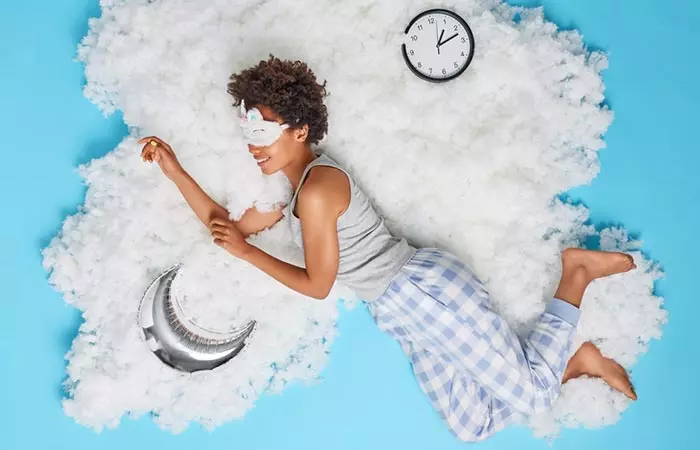
- Maintain a consistent sleep routine. It helps regulate your body’s natural function, improves the quality of life, and positively impacts the stem cell proliferation of hair follicles.
- Keep your room dark and limit the light from electronic devices. A study showed that darkness stimulates melatonini A natural hormone produced by the pineal gland (located in the brain) that helps promote sleep. secretion that improves the quality of sleep (11), (12). You can also wear an eye mask or eye pad for better sleep.
- It is easier to sleep if your surroundings are quiet. Thus, make your room sound-proof or close the door for a good sleep.
- A comfortable bed and pillow are essential to enhance your sleep quality.
- Alcohol intake during bedtime also hampers sleep quality and hygiene. Hence, avoid consuming alcohol before you go to bed.
- Do not eat a heavy meal just before sleeping. Maintain at least 2-3 hours of gap between dinner and bedtime.
- Reduce the stress in your daily life. Deep breathing exercises and yoga may help relax and calm the mind.
Shashwat Agarwal, a blogger, talks about his personal experience with hair loss due to lack of sleep. He shares how it affected him, “For many months leading up to my first semester in college, I hadn’t been sleeping well. Unaware of the fact that it was impacting my hair negatively. I never imagined that not sleeping well could lead me to getting bald. But it did (i).”
 Quick Tip
Quick TipInfographic: Breathing Exercises For Better Sleep
Inadequate sleep or lack of sleep can result in hair loss and hair thinning.. While a proper hair care routine and a balanced diet are essential for healthy hair, improving your sleep hygiene can reduce hair fall and improve hair health. Here are some exercises you can try to help you fall asleep.
Check out the infographic below to know more! Illustration: StyleCraze Design Team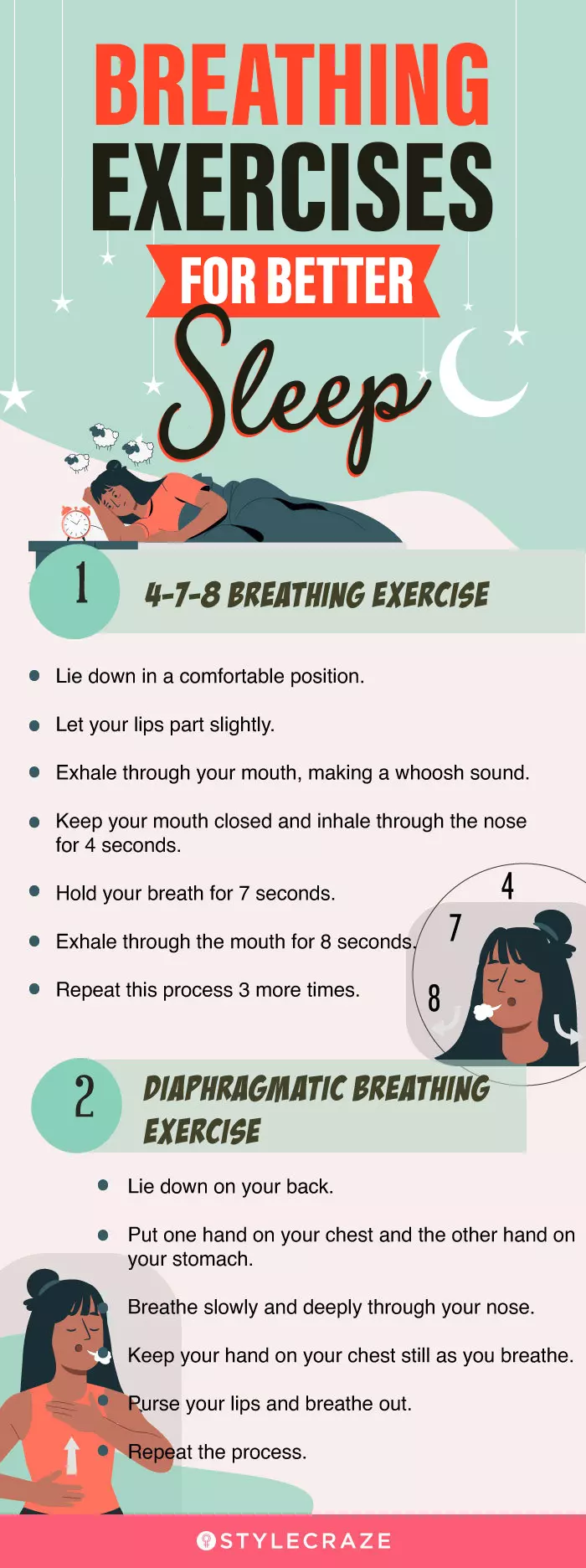
Lack of enough sleep affects your hair health. It affects the body’s natural repair process and causes many health issues, including hair loss. Poor sleep quality raises the stress hormone level and causes hair loss. Therefore, sleep and hair health are interlinked, and maintaining a healthy sleep cycle is important. Following the tips mentioned in the article can help you improve your sleep quality, teaching you how to stop hair fall caused by lack of sleep. Also, it is best to consult a doctor to diagnose the underlying condition behind hair loss.
Frequently Asked Questions
Can better sleep quality help reverse hair loss?
Improving sleep quality may support hair health by reducing stress and promoting hormone balance, however, it cannot fully reverse hair loss. Better sleep may also enhance overall scalp health and hair growth potential.
Does oversleeping cause hair loss?
No, oversleeping does not cause hair loss.
Can 6 hours of sleep cause hair loss?
Adults need at least 7 or more hours of sleep every night. So, 6 hours of sleep may cause hair loss. Poor sleep and an irregular circadian rhythm may raise stress hormones and cause hair loss.
Can pillows cause hair loss?
Pillows by themselves do not cause hair loss. However, pillow cases with a rough texture may lead to hair damage, resulting in hair loss.
Lack of sleep can cause hair loss. Learn how to get the rest you need to keep your hair healthy in the following video!
Personal Experience: Source
StyleCraze's articles are interwoven with authentic personal narratives that provide depth and resonance to our content. Below are the sources of the personal accounts referenced in this article.
i. 4 Lessons I Learned The Hard Way After Losing My Hair At 19https://medium.com/in-fitness-and-in-health/4-lessons-i-learned-the-hard-way-after-losing-my-hair-at-19-73fc448e79c4
References
Articles on StyleCraze are backed by verified information from peer-reviewed and academic research papers, reputed organizations, research institutions, and medical associations to ensure accuracy and relevance. Read our editorial policy to learn more.
- Female pattern hair loss: current treatment concepts
https://www.ncbi.nlm.nih.gov/pmc/articles/PMC2684510/ - Circadian Clock-mediated Control of Stem cell Division and Differentiation: beyond night and day
https://dev.biologists.org/content/develop/141/16/3105.full.pdf - Androgenetic Alopecia: Quality-of-life and Associated Lifestyle Patterns
https://www.ncbi.nlm.nih.gov/pmc/articles/PMC3107963/ - Interactions between sleep, stress, and metabolism: From physiological to pathological conditions
https://www.ncbi.nlm.nih.gov/pmc/articles/PMC4688585/ - Stress and the hair follicle: exploring the connections
https://www.ncbi.nlm.nih.gov/pmc/articles/PMC1868107/ - Growth hormone and cortisol secretion in relation to sleep and wakefulness
https://www.ncbi.nlm.nih.gov/pmc/articles/PMC1188300/ - Further Clinical Evidence for the Effect of IGF-1 on Hair Growth and Alopecia
https://www.ncbi.nlm.nih.gov/pmc/articles/PMC5939720/ - Role of Sleep and Sleep Loss in Hormonal Release and Metabolism
https://www.ncbi.nlm.nih.gov/pmc/articles/PMC3065172/ - HORMONE IMBALANCE—A CAUSE FOR CONCERN IN WOMEN
http://www.rjlbpcs.com/article-pdf-downloads/2018/18/221.pdf - Hair and stress: A pilot study of hair and cytokine balance alteration in healthy young women under major exam stress
https://www.ncbi.nlm.nih.gov/pmc/articles/PMC5397031/ - Melatonin, the Hormone of Darkness: From Sleep Promotion to Ebola Treatment
https://www.ncbi.nlm.nih.gov/pmc/articles/PMC4334454/ - New perspectives on the role of melatonin in human sleep, circadian rhythms and their regulation
https://www.ncbi.nlm.nih.gov/pmc/articles/PMC6057895/
Read full bio of Dr. Shruti Chavan
Read full bio of Anjali Sayee
Read full bio of Ramona Sinha
Read full bio of Swathi E






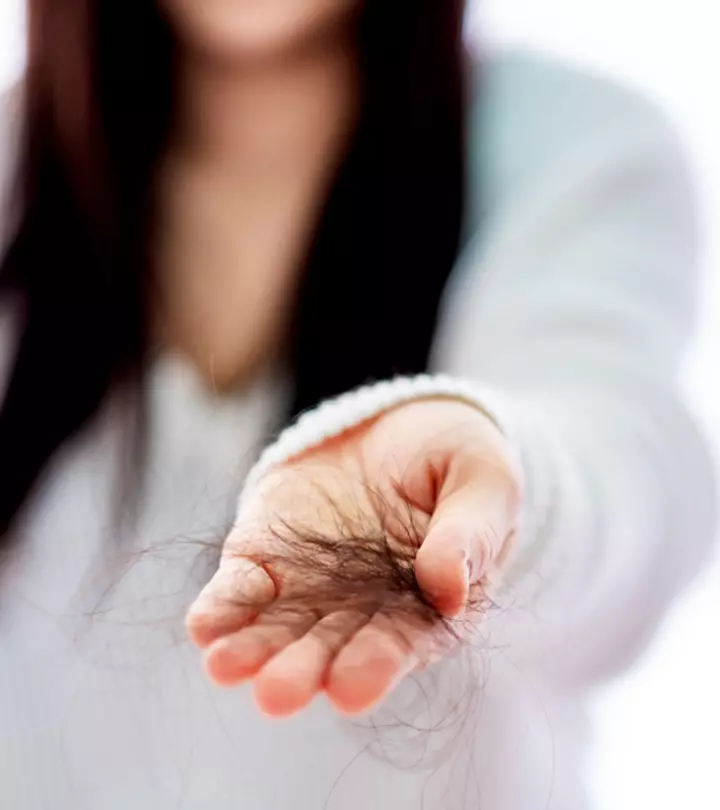
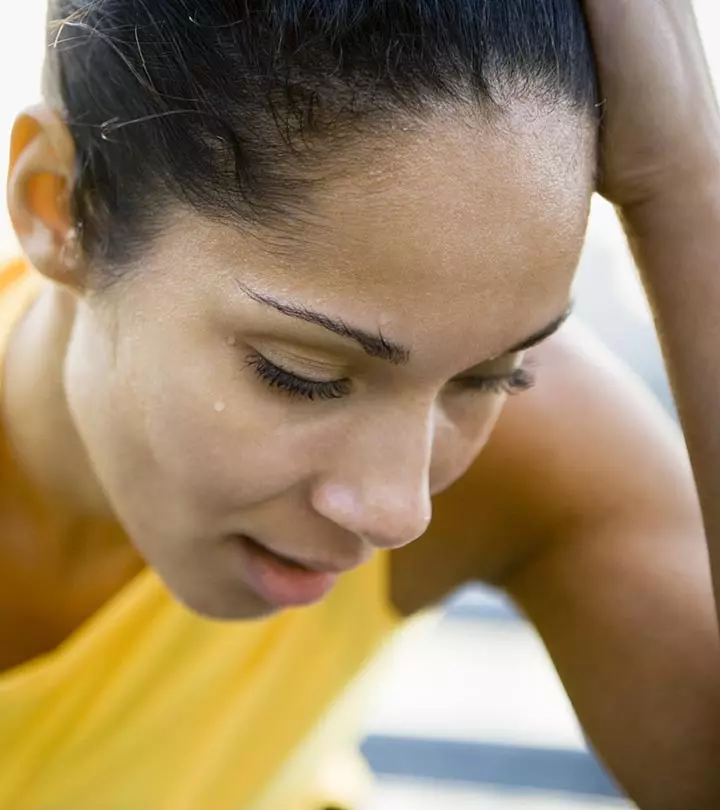
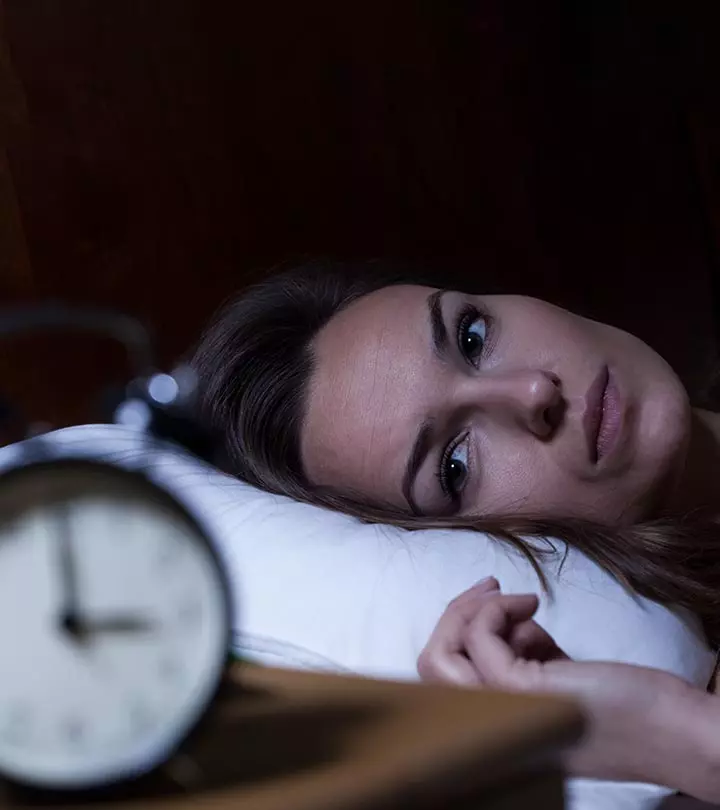
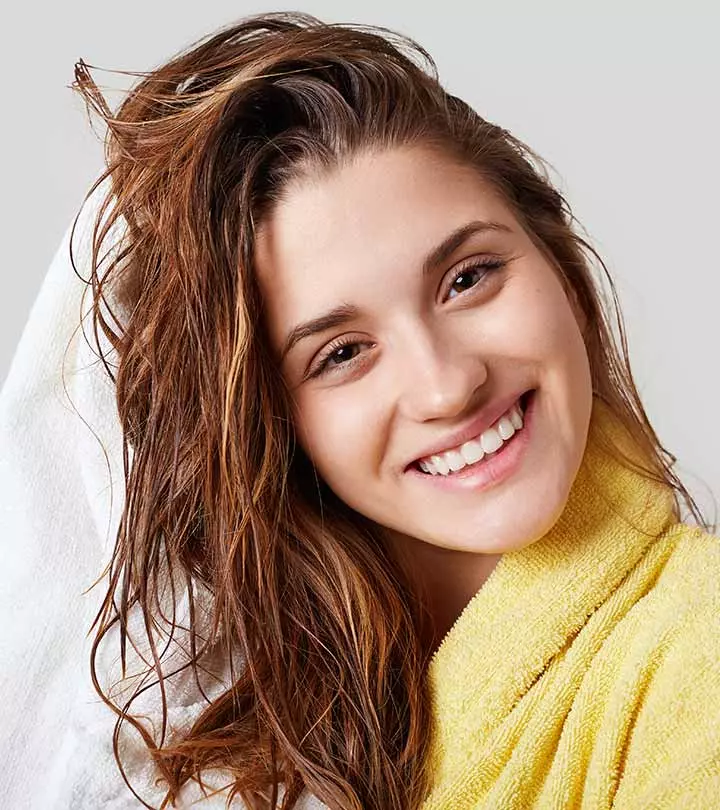
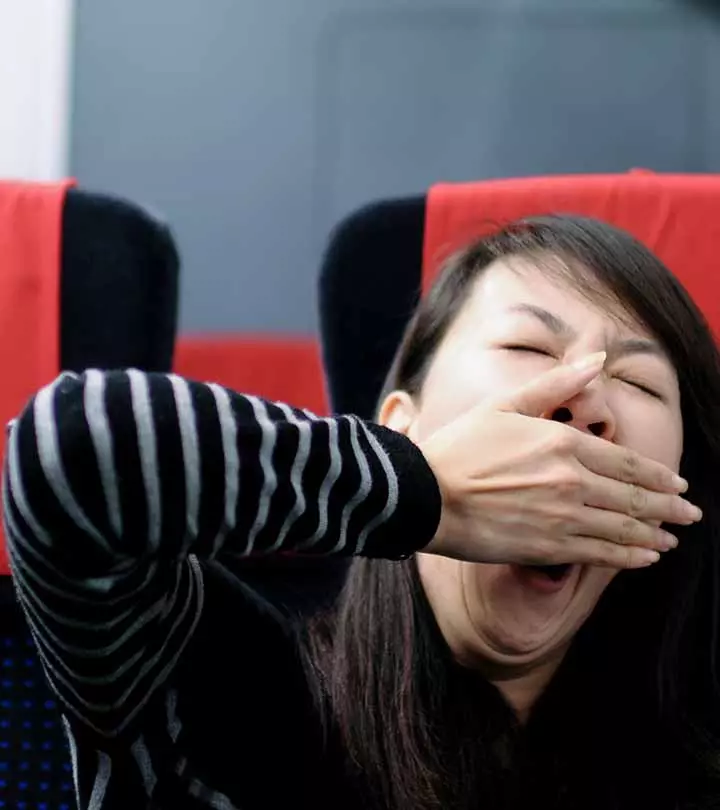
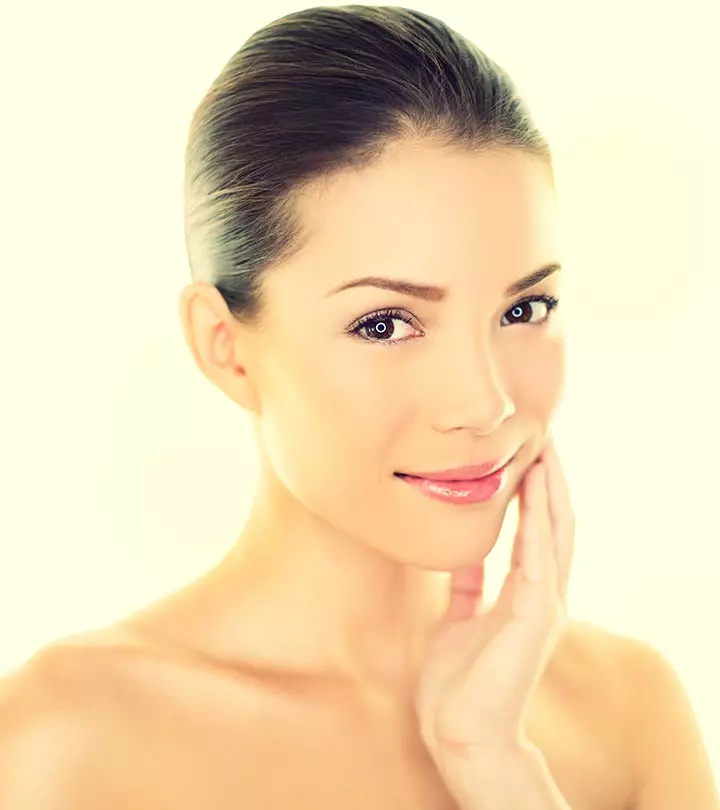
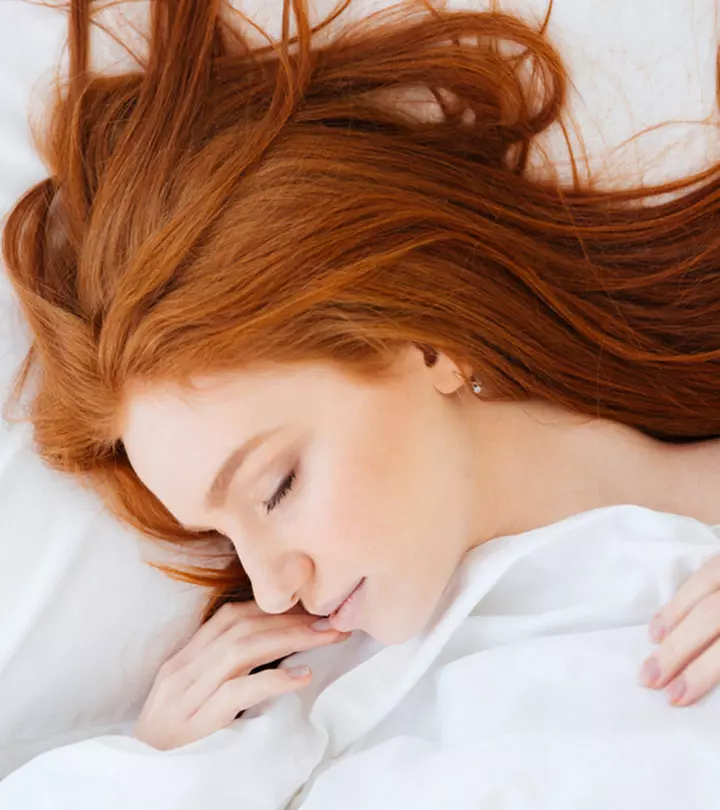
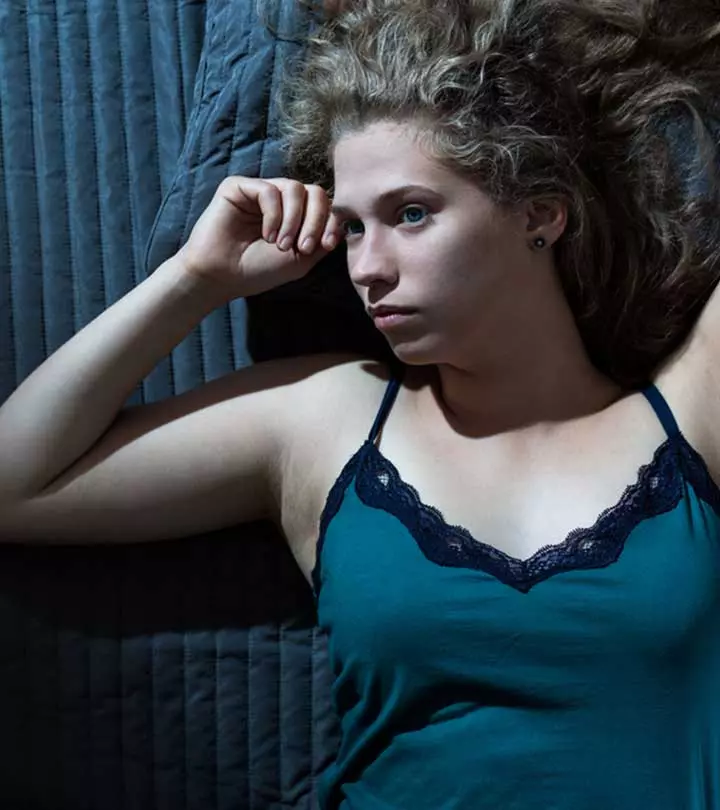
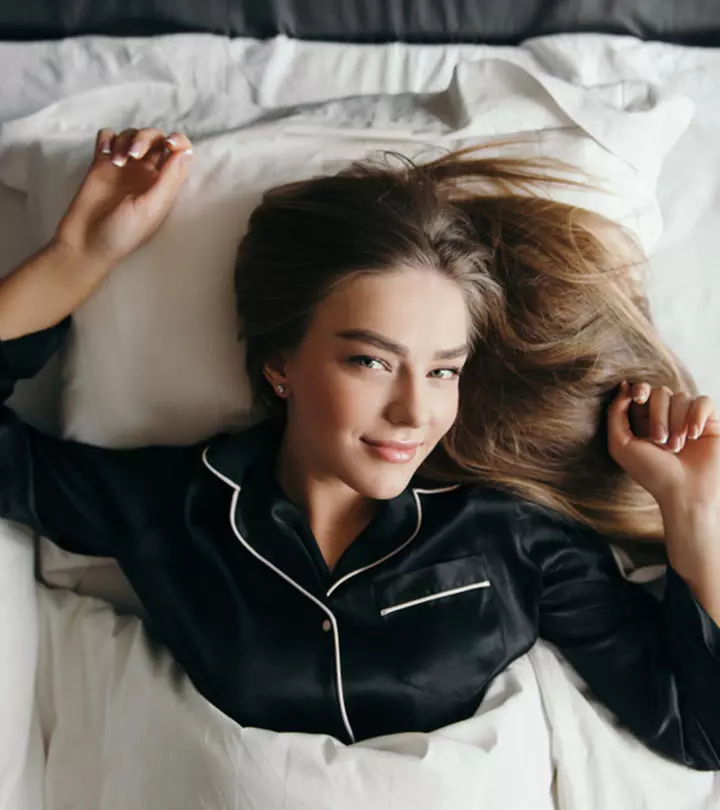
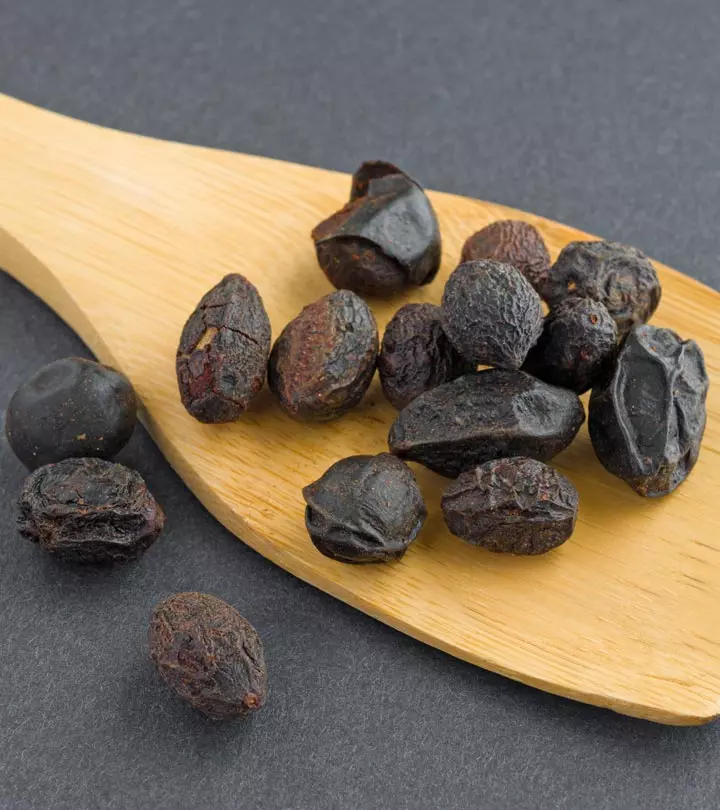


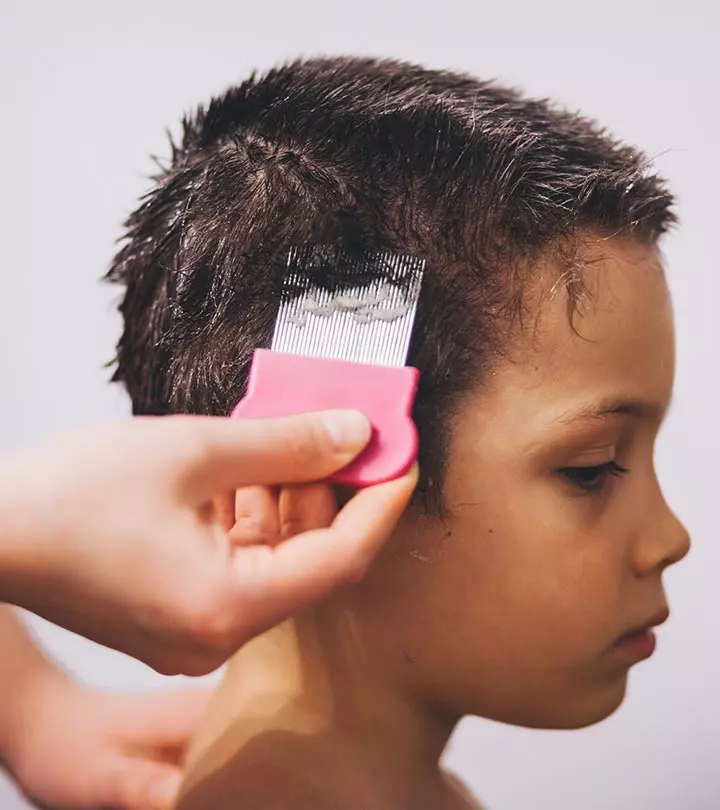

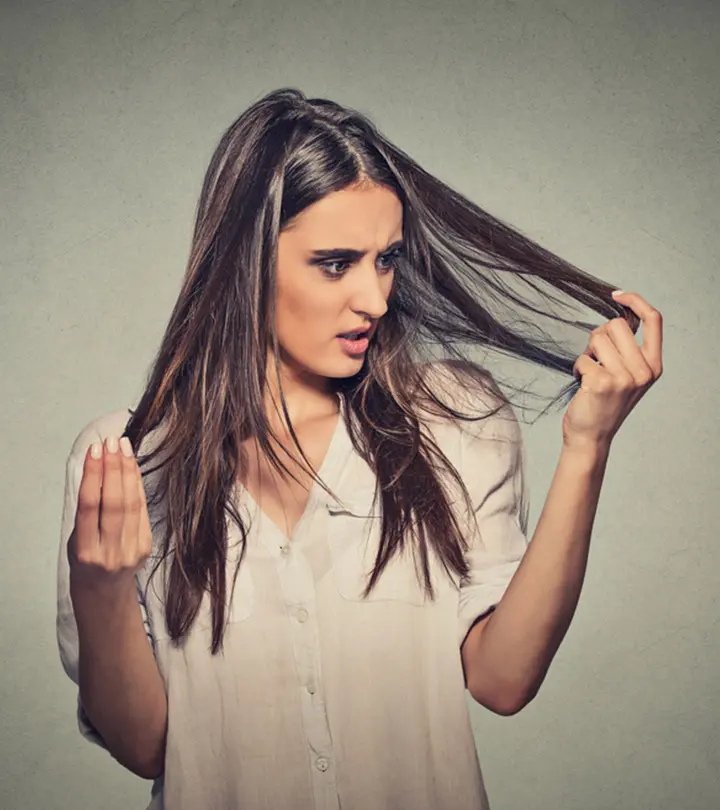

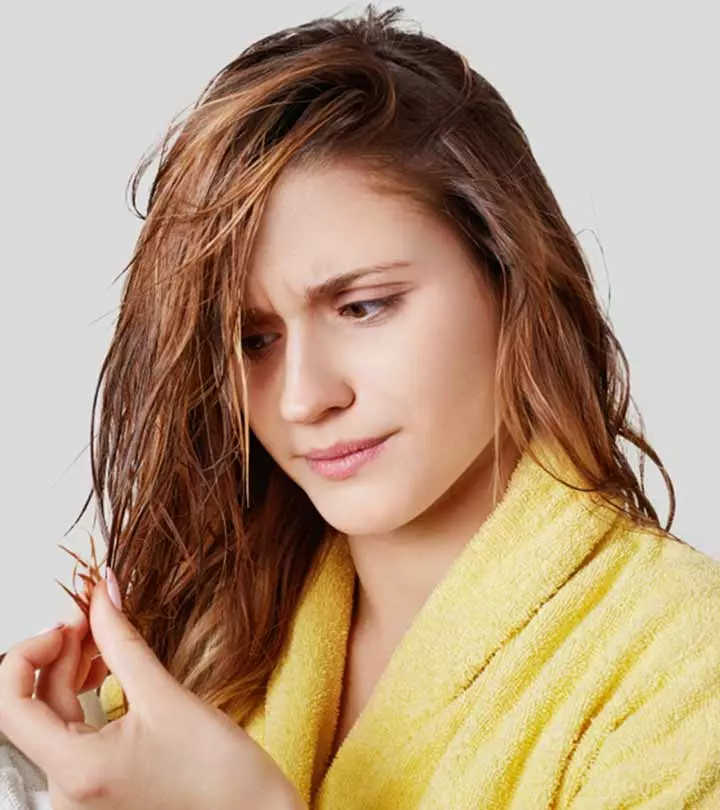

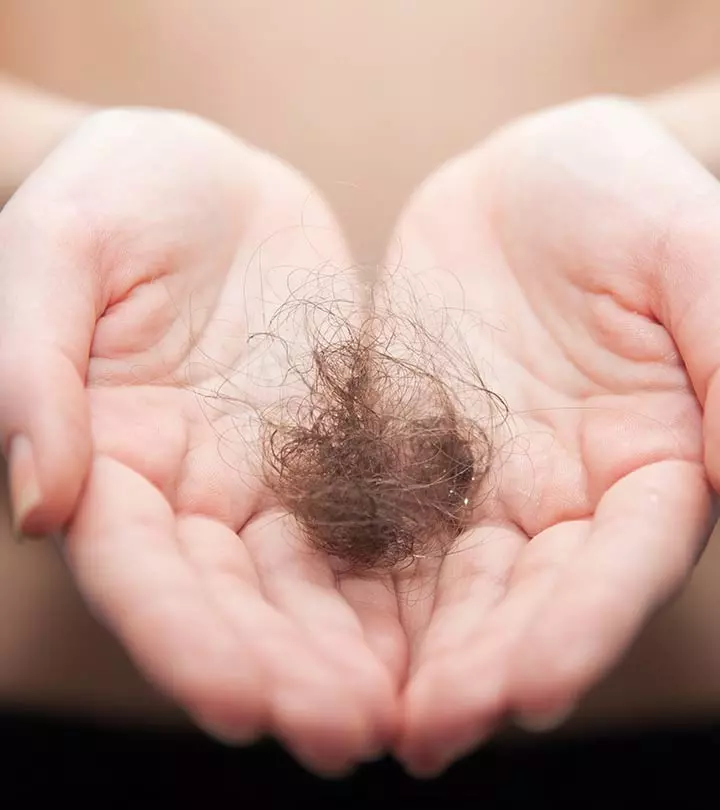
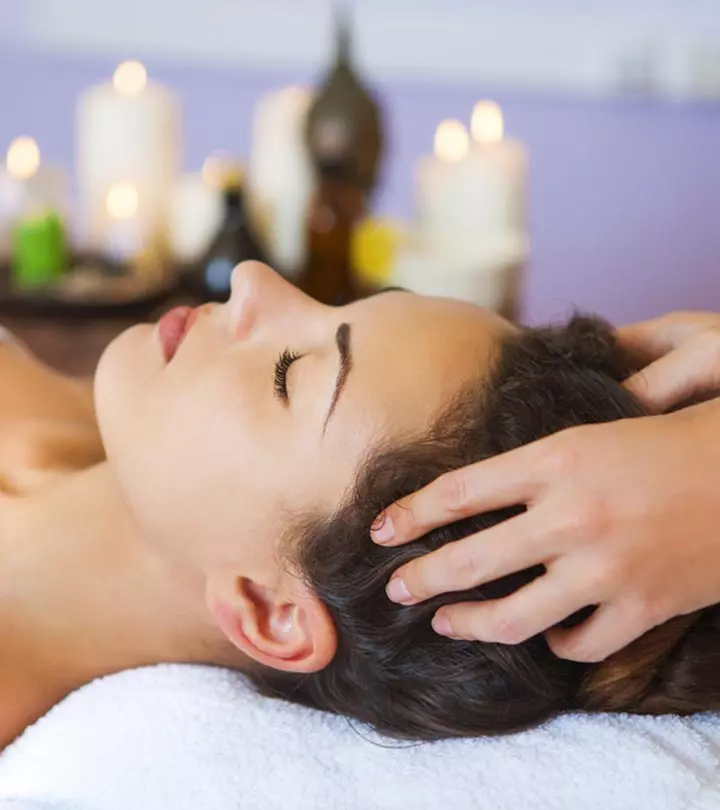
Community Experiences
Join the conversation and become a part of our empowering community! Share your stories, experiences, and insights to connect with other beauty, lifestyle, and health enthusiasts.